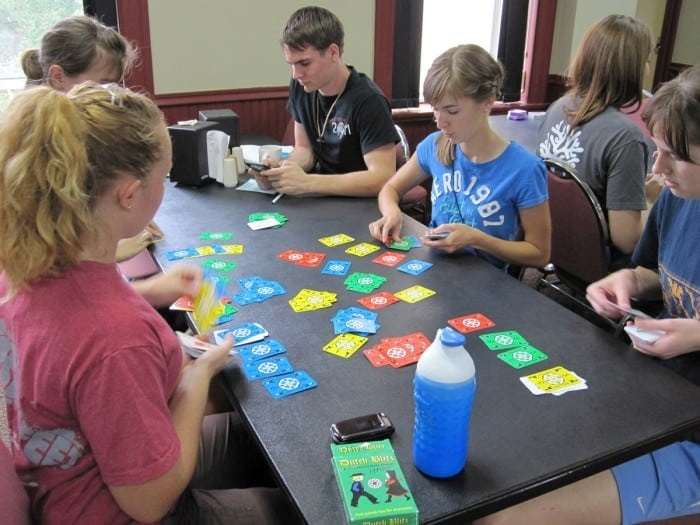In our fast-paced, digital world, finding meaningful ways to connect with others has become more challenging than ever. Whether it’s at a corporate team-building retreat, a classroom full of students, or even among friends and family, “get to know you” games have proven to be an enjoyable and effective way to break the ice, deepen relationships, and promote a sense of belonging. These games help foster communication, trust, and understanding among participants, making them a vital tool for any social setting.
In this article, we’ll explore various types of get-to-know-you games, how they can benefit different environments, and share a list of creative and engaging activities that will leave participants smiling, learning, and connecting on a deeper level.
Why Get to Know You Games Matter

Before diving into the actual games, it’s important to understand why these games matter. On the surface, they seem like simple activities designed to pass the time, but the impact they have on group dynamics and personal relationships is profound.
1. Break the Ice in New Situations
Starting conversations with new people can be awkward. Whether you’re meeting new co-workers or walking into a room of strangers at a party, icebreakers provide a structured way to get people talking. These games help alleviate the tension of silence and make everyone feel more comfortable interacting with one another.
2. Encourage Open Communication
By participating in these games, individuals often feel safer opening up about their experiences, preferences, and personalities. Since these games are typically light-hearted and fun, participants are more inclined to share information they may not otherwise in a more formal setting.
3. Build Trust Among Participants
Getting to know someone through games creates an atmosphere of trust and camaraderie. Learning about others’ backgrounds, interests, and experiences creates a bond that can improve teamwork, collaboration, and even friendship.
4. Promote Empathy and Understanding
When you engage with others in a fun, low-pressure setting, it becomes easier to understand their perspectives and values. This is particularly important in team settings, where cooperation and empathy are key to success. People tend to work better together when they know and respect each other.
5. Foster Team Building
Whether it’s a classroom, a workplace, or a sports team, knowing the people around you enhances collaboration and teamwork. Get to know you games are a great way to identify common interests, break down barriers, and create a sense of unity.
Different Types of Get to Know You Games
Not all get-to-know-you games are created equal, and the type of game you choose should depend on the group size, the setting, and the tone of the gathering. Let’s take a look at some categories of these games to help you determine which is right for your situation.
1. Simple Icebreaker Games
These games are perfect for new groups, where participants may not know each other well and are looking for a way to start conversations. Icebreakers are quick, easy, and usually don’t require much preparation or materials.
2. Team Building Games
For corporate settings or team retreats, team-building games can be great for getting people to collaborate while getting to know each other. These games often focus on problem-solving, trust-building, and communication.
3. Creative and Expressive Games
Creative games are excellent for groups that thrive on imagination and expression. They are perfect for classrooms, creative teams, and even families. These games allow participants to show their personalities in a creative and light-hearted way.
4. Deep Dive Games
Once a group has already gotten to know each other a little, deep dive games can be a way to foster more meaningful connections. These games often involve more personal questions and may lead to insightful conversations about values, goals, and personal experiences.
5. Physical Activity-Based Games
For more energetic groups, games that incorporate physical movement can be a fun way to break the ice while also staying active. These are particularly useful in outdoor settings, schools, or events where participants have a lot of space to move around.
10 Fun Get to Know You Games for Any Occasion

Let’s take a closer look at some fun and engaging get to know you games that can be tailored to any group setting.
1. Two Truths and a Lie
How to Play: Each person shares three statements about themselves—two that are true and one that is a lie. The group then tries to guess which statement is the lie.
This classic icebreaker is a perfect way to learn interesting facts about people while also having a bit of fun trying to outsmart them. It works well in both large and small groups, and can lead to some unexpected and hilarious revelations.
Why it’s Effective: It encourages participants to share personal information in a light-hearted way while sparking curiosity and engagement among the group.
2. Would You Rather?
How to Play: The facilitator asks a series of “Would You Rather” questions, where participants must choose between two options (e.g., “Would you rather travel to the past or the future?”).
This game is simple but effective in learning about people’s preferences, decision-making styles, and thought processes.
Why it’s Effective: It’s a non-intrusive way to get people to think and share their preferences. Plus, the questions can range from silly to thought-provoking, making it adaptable for any setting.
3. Human Bingo
How to Play: Create a bingo card with statements like “Has traveled to another continent” or “Has a pet dog.” Participants have to find others who fit the descriptions on the card and mark them off. The first person to fill their card wins.
This interactive game is great for larger groups and helps people mix and mingle quickly.
Why it’s Effective: It forces participants to get up, move around, and talk to multiple people, making it perfect for large events or gatherings where many people are meeting for the first time.
4. The Name Game
How to Play: Each participant says their name and something that starts with the same letter as their name (e.g., “I’m Sarah and I love sushi”). The next person then repeats the previous names and adds their own.
This game is both fun and challenging, especially in large groups, and is an excellent way to help people remember each other’s names.
Why it’s Effective: It’s a memory game that encourages active listening and ensures that everyone gets to introduce themselves.
5. Desert Island
How to Play: Ask participants what three items they would bring if they were stranded on a desert island and why. People can share their choices with the group.
This simple game encourages creative thinking and reveals a bit about each person’s priorities, personality, and survival instincts.
Why it’s Effective: It promotes creativity and allows for deeper insights into individual personalities, values, and interests.
6. Personality Quiz
How to Play: Use a pre-made quiz (such as a Myers-Briggs type indicator or a fun Buzzfeed-style quiz) and have each participant share their results with the group.
This is a fun way to explore personality differences and similarities among the group members.
Why it’s Effective: It opens the door to more in-depth discussions about how different personalities work together and how people see themselves.
7. Pictionary
How to Play: Divide the group into teams. One player from each team draws a picture based on a prompt, and their team has to guess what it is. Rotate drawers each round.
This creative game encourages teamwork and communication, while also providing laughs over bad drawings!
Why it’s Effective: It fosters teamwork and creativity and allows for participants to express themselves non-verbally, which is ideal for groups that are more shy or reserved.
8. Speed Friending
How to Play: Pair participants up and give them a minute or two to answer a few pre-prepared “get to know you” questions before rotating to a new partner. After several rounds, participants will have met a variety of people in a short amount of time.
This activity works great for large groups or events where you want people to meet as many new people as possible.
Why it’s Effective: It ensures that participants interact with multiple people, building many new connections in a short period of time.
9. Story Cubes
How to Play: Provide each participant with a set of story cubes or random images. Each player uses the images to tell a short story about themselves or an event in their life.
This game promotes creativity and storytelling, allowing people to express themselves in a unique and fun way.
Why it’s Effective: It opens up storytelling as a method for participants to share experiences while also revealing their creative side.
10. Common Ground
How to Play: In pairs or small groups, participants are tasked with finding five things they have in common that are not obvious (e.g., no “we both have brown hair” answers). Afterward, they share their discoveries with the group.
This is a great game for encouraging deeper connections between participants and discovering shared interests or experiences.
Why it’s Effective: It helps participants find commonalities, which strengthens relationships and provides talking points for future conversations.
Tailoring Get to Know You Games to Your Group

Not every game is suitable for every environment, and it’s important to choose activities that cater to the mood, energy, and familiarity of your group. Here are some tips for making the best selection.
1. Consider the Size of the Group
For large groups, games that encourage movement and interaction like Human Bingo or Speed Friending are ideal. Smaller, more intimate groups may prefer more personal activities like Two Truths and a Lie or Desert Island.
2. Know Your Audience
Understanding the personalities, comfort levels, and energy of your group will help you pick a game that everyone will enjoy. For example, shy participants may prefer a less confrontational game like Personality Quiz, while outgoing groups may love the fast pace of Pictionary.
3. Adapt to the Setting
Outdoor spaces allow for more physical games like scavenger hunts or relay races, while indoor settings may be better suited for conversation-based games.
4. Gauge the Time You Have
If you only have a short amount of time, quick games like Would You Rather or The Name Game are perfect. If your group is going to spend several hours together, you can opt for more involved activities like Personality Quiz or Story Cubes.
Related Post:
Exploring “Run 3 Unblocked Games”: A Cosmic Adventure
The Ultimate Guide to Tomb Raider Games in Order: A Journey Through Lara Croft’s Legacy
The Cast of Love Island Games: Meet the Vibrant Personalities Behind the Show
Get to know you games are far more than just a way to pass the time—they are powerful tools for building relationships, breaking down barriers, and fostering a sense of community. By choosing the right game for your group, you can create an environment where people feel comfortable, connected, and engaged.
Whether you’re in a corporate setting, a classroom, or just hanging out with friends, the next time you need to break the ice or bring people closer together, try incorporating one of these fun and interactive games. The laughter, stories, and connections that emerge will last long after the game is over.


